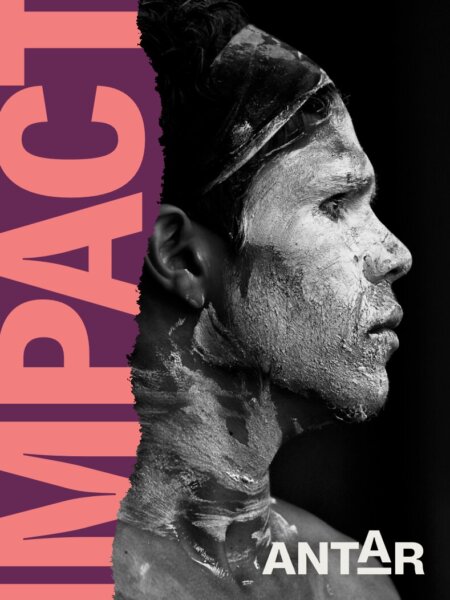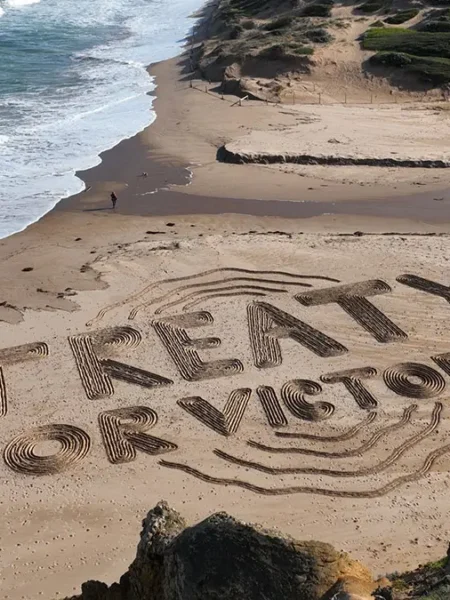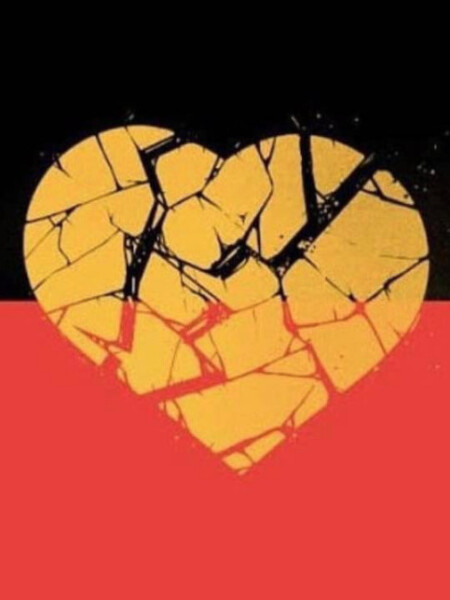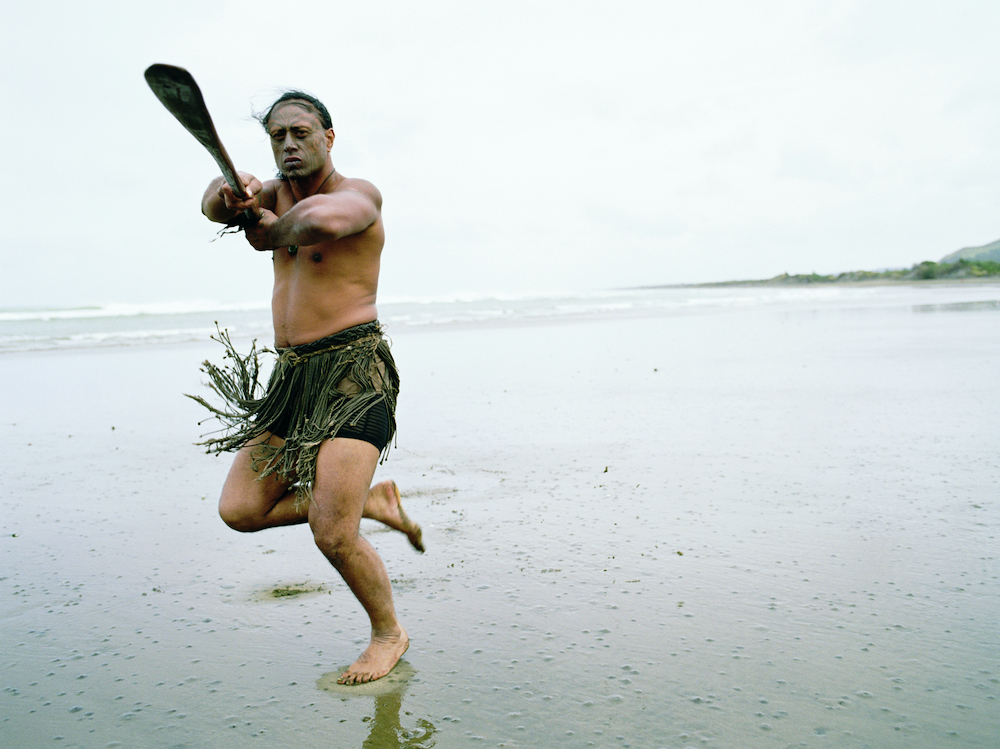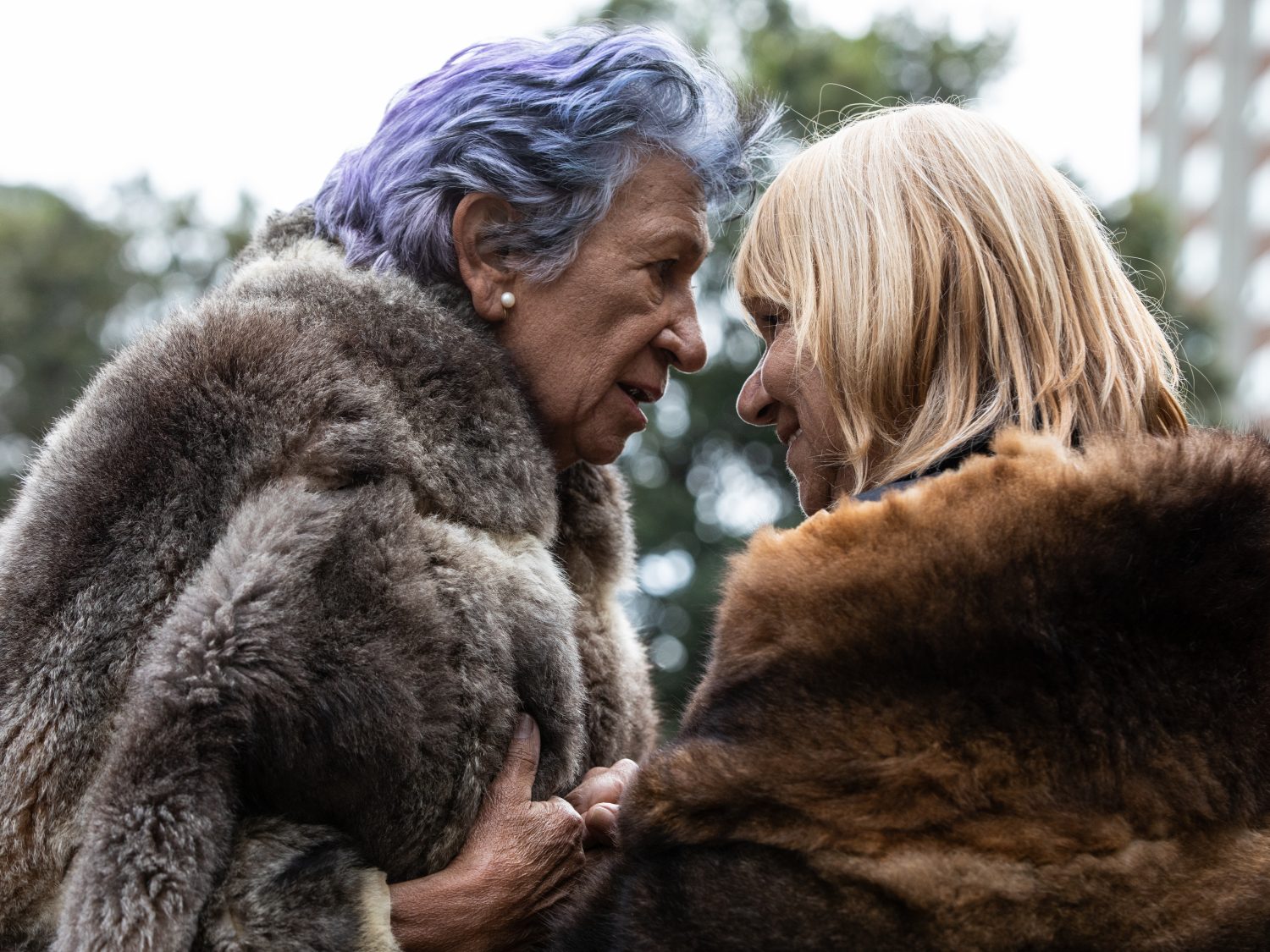BACKGROUND
In the absence of any negotiated agreement for their presence, the permanent and violent arrival of the British had devastating consequences for First Nations Peoples in the Northern Territory, the ongoing effects of which continue to be felt today. Still, First Nations resistance in the Territory was determined and enduring.
In the 1960s, the determination of First Nations peoples for recognition of their rights and interests began to take hold. In 1963, the Yolngu community of Yirrkala drafted a Bark Petition calling for recognition of their land rights. The Parliament set up a committee to investigate the petition, but the government subsequently granted rights to a mining company to develop a bauxite mine. Disappointed by the governments’ failure to listen, the Yolngu took the Australian government to Court. Although they lost, their tenacity led directly to the establishment of the Woodward Royal Commission, which recommended the introduction of a system of land rights across the Territory.
In 1976 the Aboriginal Land Rights (Northern Territory) Act was passed with historic bipartisan support. It was the first legislation that allowed for First Nations peoples to claim land title if traditional association could be proven.
In the 1970s and 1980s treaty talk became more prominent. In 1979, the National Aboriginal Conference – an elected First Nations representative body – passed a resolution calling for a ‘Makarrata’, a Yolngu word meaning a coming together after a struggle. The following decade, in 1988, Wenten Rubuntja (Central Land Council) and Galarrwuy Yunupingu (Northern Land Council) presented Prime Minister Bob Hawke with the ‘Barunga Statement’, calling for a treaty. The prime minister committed to treaty talks by 1990. However, met by a hostile opposition, the Government shelved the idea in 1991.
More recently, treaty has again been placed firmly on the political agenda. On 12 September 2016, the Chief Minister for the Northern Territory, Michael Gunner, declared that his Government would establish a subcommittee on Aboriginal affairs to ‘drive public discussions on a treaty’.
In March 2018, the Northern Territory and Land Councils agreed to establish a Treaty Working Group to develop a Memorandum of Understanding. On 8 June 2018, the Northern Territory Government and all four Aboriginal land councils signed the historic agreement to begin treaty talks. The Barunga Agreement commits all parties to a three-year process to consult all Territorians to develop a process to negotiate a treaty, with the aim of achieving real change and substantive long-term benefits for First Nations people in the NT.
The Northern Territory treaty process is building slowly, but it has suffered several setbacks. Professor Mick Dodson was announced the inaugural Treaty Commissioner in March 2019. In June 2020, following several months of consultation, the Treaty Commissioner released a Discussion Paper and proposed negotiation framework for Treaty in the Northern Territory. However, in June 2021, Professor Dodson resigned as Treaty Commissioner.
In December 2021, Tony McAvoy SC was appointed interim Treaty Commissioner. A Final Report to the Minister for Treaty and Local Decision Making on the outcomes of the consultations and recommendations for the treaty framework was delivered in March 2022. Based on consultations with First Nations persons living across the NT, the Final Report recommended establishing First Nation governments through negotiating Territory-wide and nation-based treaties with First Nations groups, extending the commission to a Treaty and Truth Commission, and legislating Voice, Treaty and Truth reforms.
Commissioner McAvoy supervised and submitted the Final Report to the Minister for Treaty and Local Decision Making, Selena Uibo MLA, on 29 June 2022. Minister Uibo tabled the Final Report in Parliament on 26 July 2022 and confirmed the NT government’s ongoing support for a pathway to treaty and truth-telling for the Territory.
On 29 December 2022, the NT Government responded to the Final Report. Whilst claiming to continue its support for a pathway to treaty, the NT government announced the closure of the independent NT Treaty Commission, with Minister Uibo stating the commission’s closure was due to the Final Report indicating a lack of complete agreement amongst First Nations persons on treaty processes.
In the December 2022 response to the Final Report, Minister Uibo announced the establishment of a Treaty Unit within the Office of Aboriginal Affairs, which will oversee a number of First Nations Forums with the Land Councils over two years. The objective of these forums is to ‘test’ whether First Nations peoples’ ambitions for treaty and truth-telling match the 2022 Final Report.
In 2024, Aboriginal Affairs Minister Chansey Paech said the treaty process had slowed due to the Voice referendum but that it was now being rebooted. Paech announced the NT government was proceeding with the revival of the Treaty Working Group with the land councils and the community in order to establish a pathway forward for treaty in the Northern Territory. The NT government also announced it would hold treaty symposiums in April 2024.
The Northern Land Council announced it was very pleased to see treaty back on the top of the Northern Territory government agenda.
Further Reading
Treaty in NT Factsheet
To read a more in depth account of Treaty in NT, you can access our Factsheet here.
Other links

